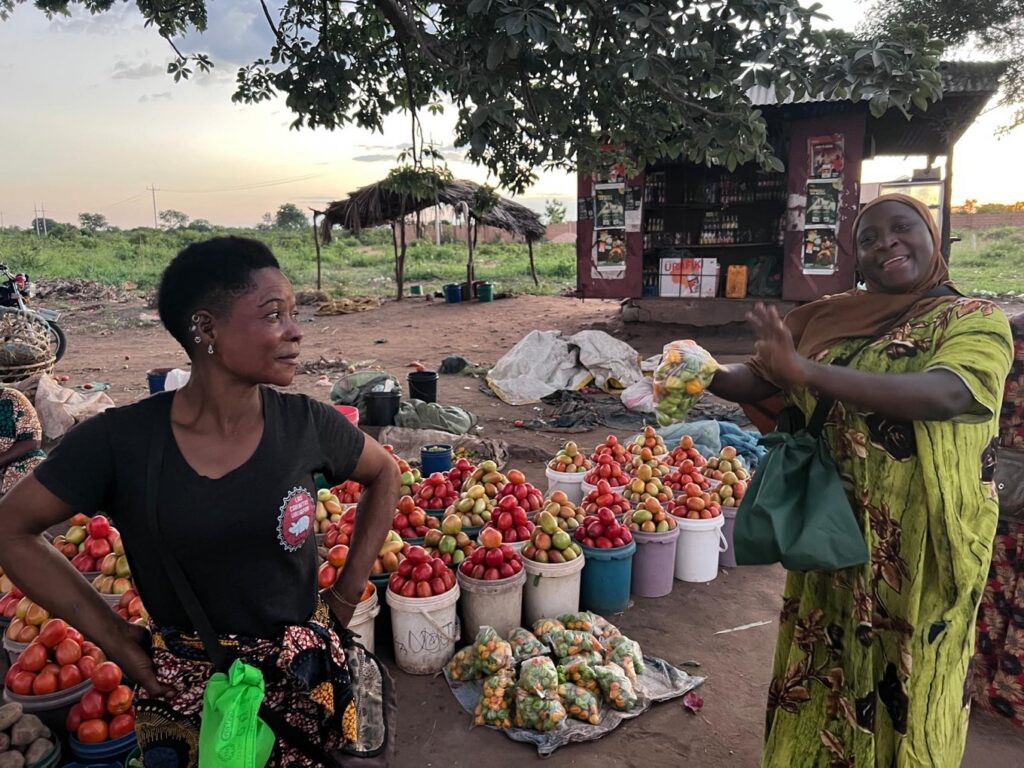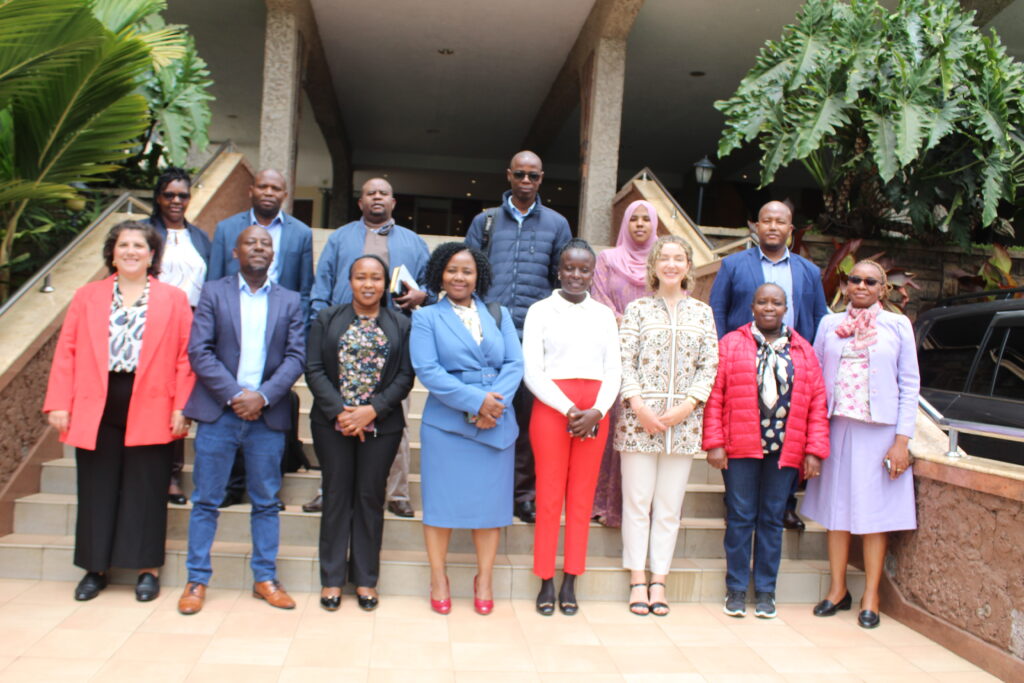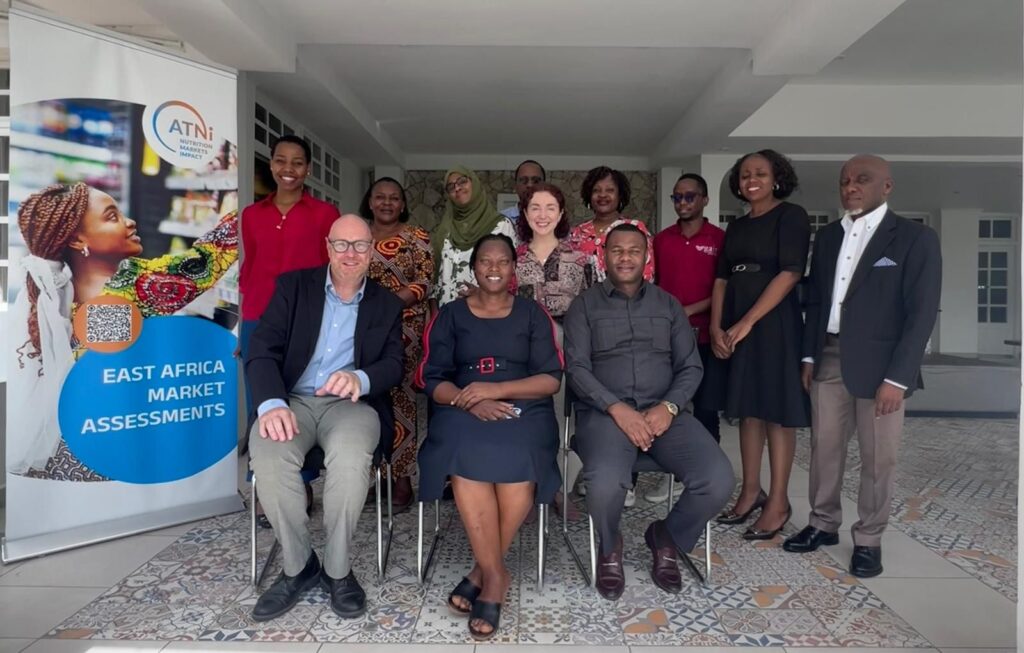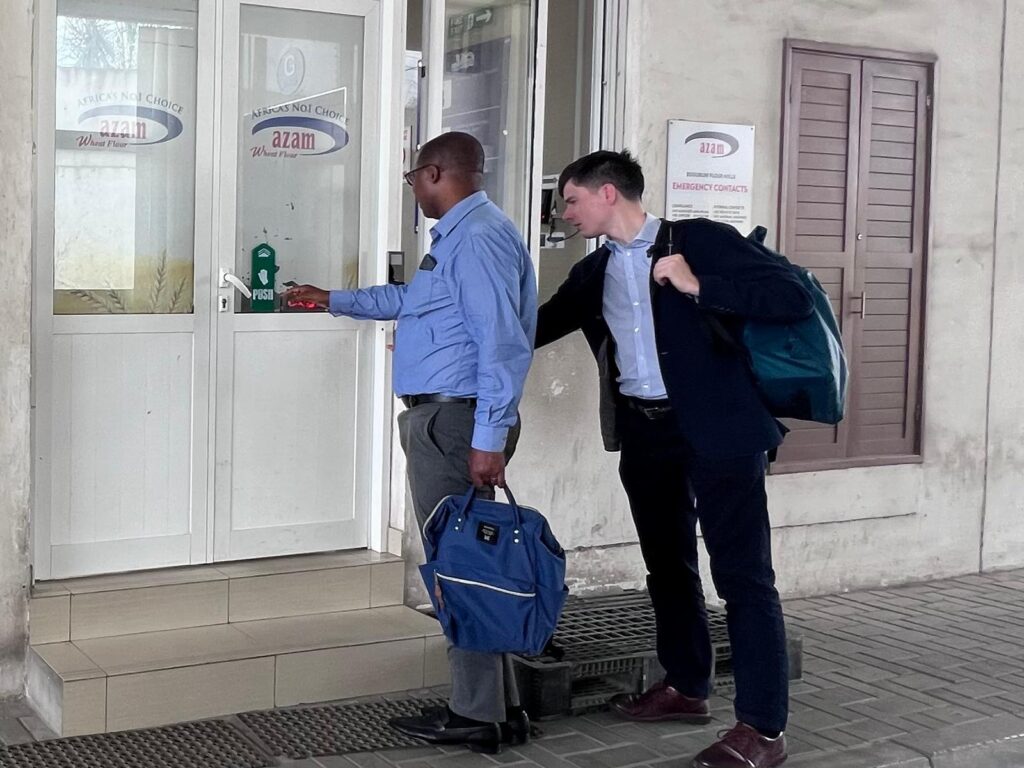
East Africa Market Assessments (EAMA)
Assessing the private sector's contribution to nutrition in Kenya and Tanzania
Context
The Nutrition transition in Africa is intricately linked with the rise of non-communicable diseases (NCDs) and persistent issues of malnutrition. Traditionally, African diets relied in large part on locally sourced, whole foods rich in nutrients. However, economic development, urbanisation, and globalisation and the rise in modern retail growth, including retail and fast-food outlets, has led to increased availability of processed foods and shifts in consumption towards more processed, energy-dense foods higher in fat, salt and sugar. Health consequences are linked to the triple burden of malnutrition; undernutrition and hidden hunger persisting alongside a growing prevalence of overweight and obesity.
Statistics shared by UNICEF in a report in 2019, identified that an alarming 38 million children under 5 years old were overweight, globally. Regional trends indicate that the prevalence of NCDs such as cardiovascular diseases, diabetes, and certain cancers is increasing. This is also partly due to dietary changes and sedentary lifestyles. The 2024 World health statistics report states that in 2022, an estimated 50% of the burden of malnutrition in the African Region was due to obesity.
Specifically, malnutrition in both Tanzania and Kenya pose a substantial risk for children under five, with current statistics highlighting high rates of stunting, wasting, and underweight . Addressing these challenges requires multifaceted approaches that promote access to nutritious foods, encourage healthier eating habits, and mitigate the impacts of urbanisation and globalisation on dietary choices.
ATNi (Access to Nutrition initiative) is focused on expanding its work at this critical intersection to monitor the private sector’s role in more markets in low- and middle-income countries, including in East Africa. More specifically, ATNi aims to carry out market assessment in East Africa (Kenya & Tanzania) based on the growing triple burden of malnutrition, increasing consumption of processed foods, and private sector opportunities in the two countries, and donour interest. This project aims to complement ongoing projects such as ATNi’s Paris Declaration and investor engagement activities.
Project Overview
- Conduct food environment market assessments in East Africa (Kenya and Tanzania) to complement existing research and methodologies and to include a specific lens on the private sector and food retail, focusing on tracking the use of fortified staples as ingredients in packaged foods by food and beverage manufacturers.
- Update/adapt an existing version of the HSR model (HSR+) to assess product healthiness with a specific focus on micronutrients and fortification.
- Understand if unhealthy processed foods are being fortified and marketed (e.g. fortified biscuits).
- Develop a contextualised version of our existing company policy and commitment methodology to assess companies’ nutrition practices and policies in East Africa (tailored to national and regional context).
- Map the current investment landscape in both countries and the materiality of fortification.
The results of the EAMA are projected to reach and engage with governments, the private sector and investors in Kenya and Tanzania on a national scale, by providing evidence and information on:
- the state of packaged foods being sold in East Africa
- the extent to which they address micronutrient deficiencies
- the influence the food and beverage manufacturers are having and could have on food
fortification supply chains - the current investor landscape for the food sector
Research Approach
Private sector lens food environment mapping:
- analysis of existing and ongoing research and methods for food environment mapping
- establish a methodology with a private sector lens
- stakeholder consultations and country visits
Company selection, corporate policy and commitment assessment:
- top 10 largest national food and beverage companies
- streamline and adapt a version of an existing Index methodology
- conduct stakeholder roundtables with government, academia, industry associations, CSOs, and NGOs
Assessment of product healthiness and micronutrients:
- utilise ATNi’s Nutrient Profiling System, an adapted version of the Health Star Rating model, to assess the healthiness of products being sold
- focus on micronutrients to track the use of fortified ingredients
- co-design the tool with university/research institute
Corporate profile assessment:
- Conduct a market assessment on nutrition-related policies, practices, and procedures in East Africa
- Information will be taken from what is publicly available, and companies will have the opportunity to provide supporting data
Data analysis, report writing, and launch:
- Product data will be analysed to determine the mean healthiness and sales of the company’s product portfolios
- Companies’ corporate profile assessments will be analysed, and peer reviewed
- Results will be displayed in the form of rankings, tables and reports and published.
- A final multi-stakeholder roundtable event will be hosted to launch the results in partnership with stakeholders
—

Kenya Market Assessment
In August 2024, the ATNi project team travelled to Nairobi, Kenya to host roundtables with relevant nutrition experts such as the Ministry of Health, the African Population Health and Research Center (APHRC), Kenyatta University, NGOs, CSOs among others and met with large food and beverage companies included in the assessment.
The aim of these sessions was to present the Kenya Market assessment corporate and product profile methodologies, hear feedback to ensure it is context specific and contributes to the local nutrition agenda. The team also consulted with experts for its food environment mapping report and met with advisory group members.
Photo 1: Roundtable with Nutrition experts in Nairobi, March 2024
Photo 2: ATNi’s Bo-jane, Mark and Efi at the APHRC offices with Dr. Gershim Aisiki and staff in Nairobi, March 2024



- Coca-Cola Co
- New Kenya Co-operative Creameries Ltd
- Bidco Africa Ltd
- Kevian Kenya Ltd
- Highlands Mineral Water Co Ltd
- Brookside Dairy Ltd
- Excel Chemicals Ltd
- Kapa Oil Refineries Ltd Kenya
- Nestlé SA
- Capwell Industries
- Flora Food Group
- Mini Bakeries (NRB) Ltd
*30 companies will be assessed in the ‘Product Profile’ assessment, determining the mean healthiness of companies’ product portfolios using Nutrient profiling models (HSR, HSR+ (micronutrients added to the algorithm), the WHO AFRO model and the Kenyan draft Nutrient profiling model (KNPM)).
Photo 3: ATNi’s Bo-jane and Mark with Ms. Lelia Kinyi, Mr. John Mwai and two interns at the Ministry of Health offices in Nairobi, August 2024
Kenya Market Assessment 2025 Full Report
Kenya Market Assessment 2025 Executive Summary
Kenya Full Product Profile Report 2025
Kenya Market Assessment Pollicy Brief
Tanzania Market Assessment
In November 2024, ATNi met with a diverse group of government, civil society, local NGO and other nutrition stakeholders in Dodoma & Dar es Salaam and hosted roundtables to present the project, corporate profile, and product profile assessment and methodology. The team also consulted with experts for its food environment mapping report and met with advisory group members.
The session introduced the approach, timeline and provided stakeholders and companies with an opportunity to ask questions and provide their input. The overall aim was to identify how this research could be utilized by stakeholders to contribute to Tanzania’s nutrition agenda and inform companies of the upcoming assessment.
Photo 1: Roundtable with Nutrition experts in Dar es Salaam, 2024
Photo 2: ATNi’s Efi, Bo-jane, and Mark with Dr. Germana Leyna (TFNC) project advisory group member in Dar es Salam, 2024



In February 2025, ATNi spent two weeks visiting F&B companies in Dar, Iringa, Tanga and Arusha, Tanzania. The aim of these visits was to visit companies and provide further information about the assessment process and to provide an introduction to Probench, ATNi’s assessment platform and the product profile assessment process.
This was an opportunity to open dialogues and engage with the companies on their role in providing affordable nutritious foods for Tanzanians.
Photo 3: ATNi’s Freddie during F&B company visits, February 2025
- Asas Group
- Bakhresa Group
- Coca-Cola Kwanza
- Darsh Industries Ltd (Redgold)
- Iringa Foods and Beverages
- MeTL Group
- Murzah Wilmar Tanzania
- Motisun/Sayona Drinks
- Tanga Fresh Limited
- SBC (PepsiCo)
*30 companies will be assessed in the ‘Product Profile’ assessment, determining the mean healthiness of companies’ product portfolios using Nutrient profiling models (HSR, HSR+ (micronutrients added to the algorithm), and the WHO AFRO model).
Photo 4: ATNi’s Freddie during F&B company visits, February 2025
Tanzania Market Assessment 2025 Full Report
Tanzania Market Assessment 2025 Executive Summary
Tanzania Full Product Profile Report 2025

Advisory Group
Dr. Gershim Asiki, Senior Research Scientist (Medical Epidemiologist), African Population & Health Research Centre, Kenya
Mr. Zachariah Muriuki, Nutrition Officer, Ministry of Health, Kenya
Prof Catherine Kunyanga, Professor of Food Science and Technology, University of Nairobi, Kenya
Mr. Peter Mutua, Food Standards Manager, Kenya Bureau of Standards, Kenya
Dr Vivian Maduekeh, Program Director, Partners in Food Solutions, Nigeria/London
Festo Kavishe, Regional Coordinator for Eastern and Southern Africa, Iodine Global Network, Tanzania
Dr. Germana Leyna, Managing Director, Tanzania Food and Nutrition Centre, Tanzania
Stephanie Kaaya, National Mirror Committee Technical Secretary, Tanzania Bureau of Standards, Tanzania
This project is funded by the Waterloo Foundation, the Bill and Melinda Gates Foundation, and the Foreign, Commonwealth and Development Office.
Timeline
The projected timeline for this project is April 2024 – June 2025 for Kenya and October 2024 – June 2025 for Tanzania.
For more information linked to the project, please reach out to:
Bo-jane Woods, Partnerships Manager: bo-jane.woods@atni.org

